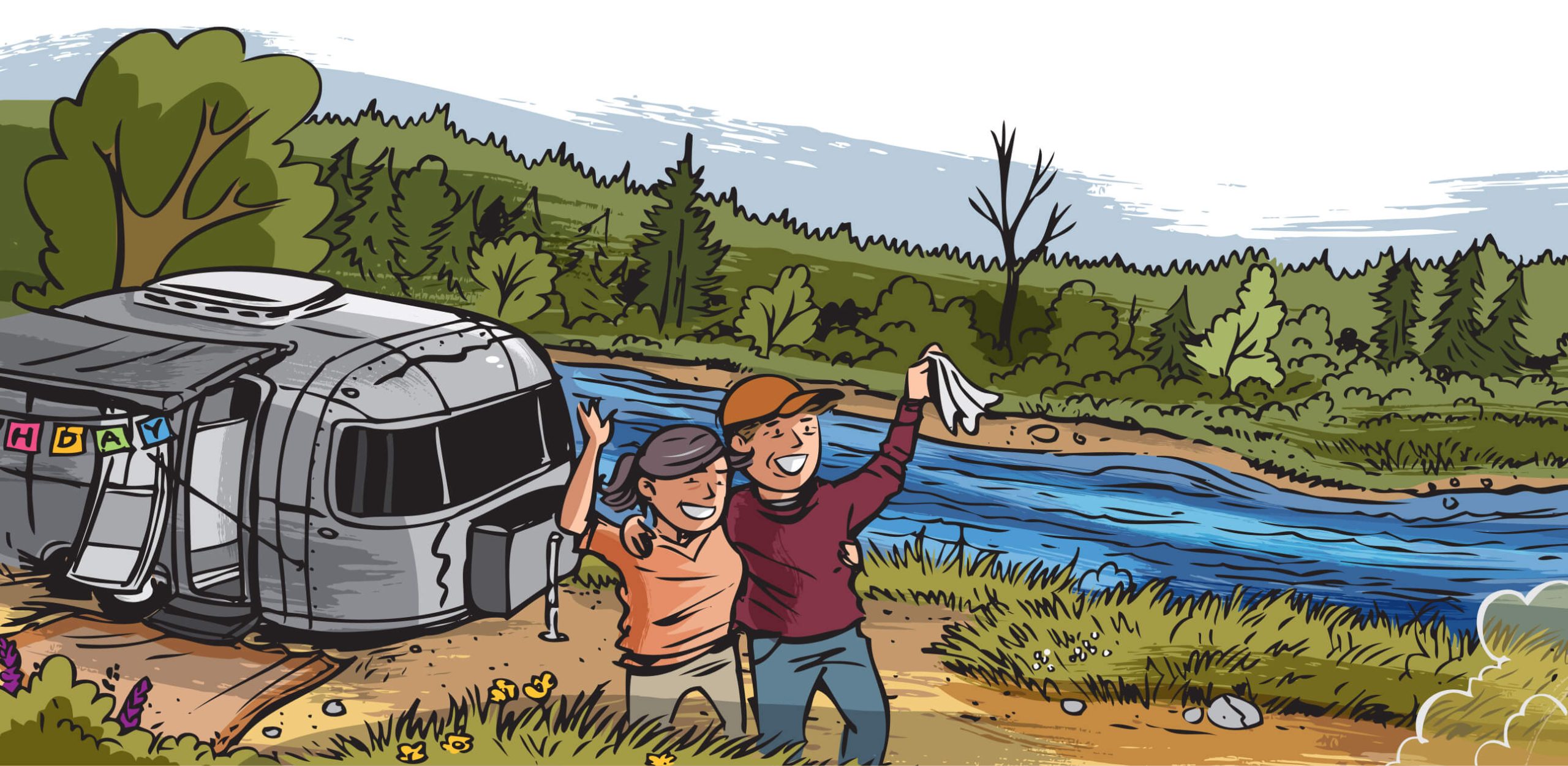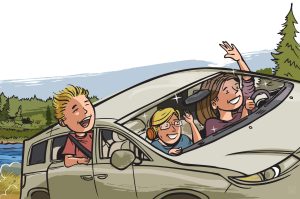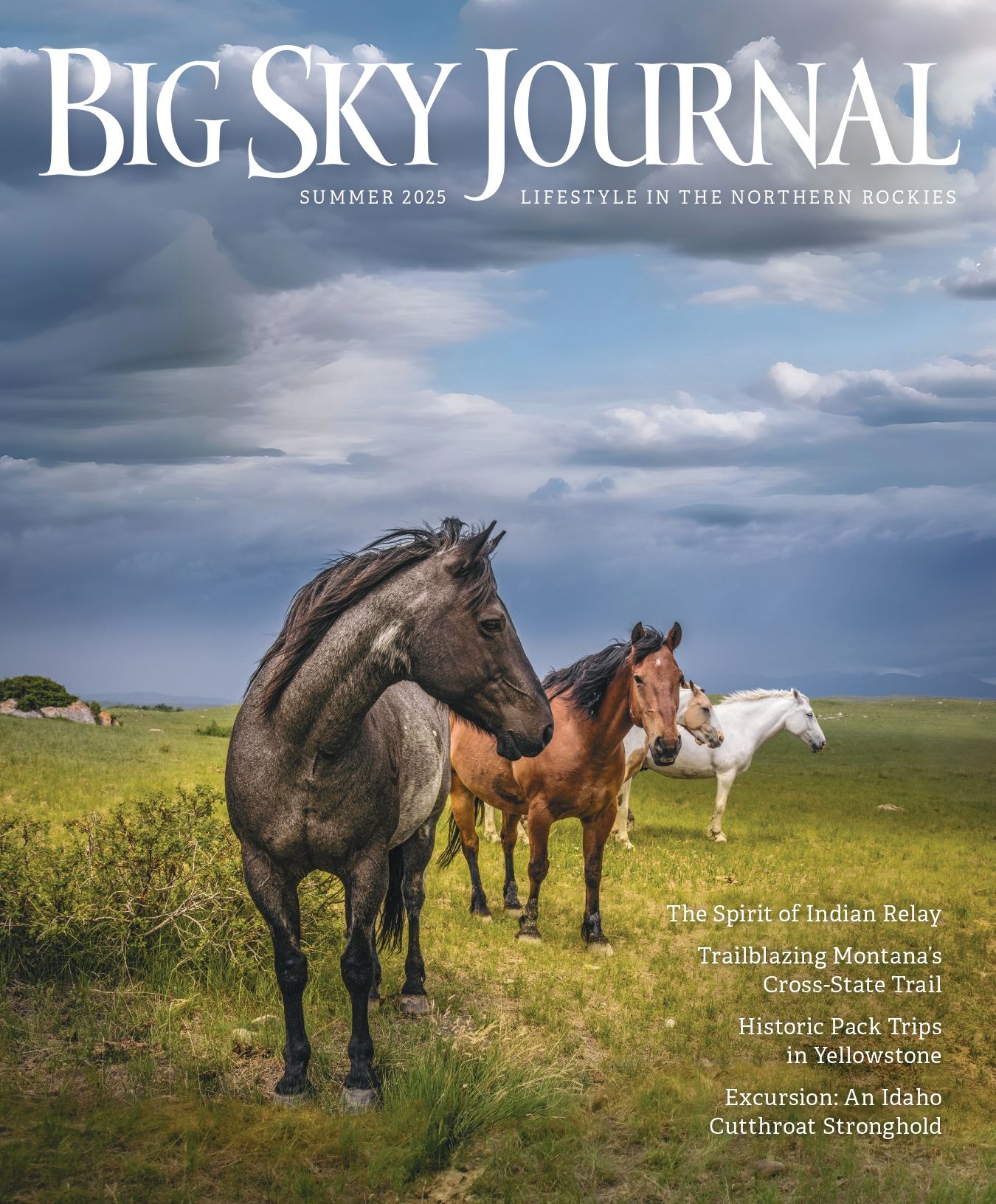
01 Jun Outside: Seeing Clearly
On a late summer morning in southern Idaho, our campground neighbors hang a “Happy Birthday” banner from the awning of their trailer. They are the kind of empty nesters I aspire to be; tanned and fit, they began the day kayaking in the lake and ended the previous night with a robust walk around the loop. This is not their first camping rodeo, as evidenced by the rug they roll out below the entrance steps and the pool noodles that soften the edges of the pop-out parts of their trailer.
At first, I think the banner is nifty, a sign they really are loving their birthdays, embracing them instead of treating advancing age as something to be ignored. I am guilty of the latter, and it is part of the reason we’ve been living in our camper for the last two years as I come to grips with the first half of my life, which excluded the kinds of adventures I’d expected.
At noon, a minivan with a woman and her tween sons arrives at their site. One is brushing up against adolescence with all its attendant lankiness; the other is younger, but he’s already mimicking his older brother’s self-conscious gait.

So, this is a birthday party for a grandchild. There are hugs all around as the children tumble from the minivan and beverages are distributed. Everyone heads down to the water. When they return, they start a campfire, throw a frisbee, laugh, and sing the birthday song.
The next morning, the mother and her sons make motions to leave. The three of them go down to the water, presumably for one last dip. While they are away, the grandparents take a can of window cleaner and two rags and carefully wipe down the car windows, inside and out. They are thorough and meticulous, doing this in the unmistakable way of a team performing in concert for decades.
The children pile into the car, the mother says goodbye, and off they go, waving from behind the crystal-clear windows. It occurs to me that now the mother can see the lines of the road in front of her a little easier. There’s a bit more clarity for the family than before they spent a birthday night in this campground. Those two parents made it a tiny bit simpler for their daughter to see what is in front of her.
At a certain point, that’s all we can do for the children in our lives, biological or otherwise. When they are young, it’s about fulfilling their eating, sleeping, and security needs. Then, it’s about discovering feelings and starting the lifelong work of figuring out how to relate to other people. Then, the dis-attachment begins, with them forming their own tribes and solving problems entirely without us. Then there’s this: the separate lives, the physical distance, the conversations over the phone that may be no more than that for years. But even then, as these two have shown, parents can still wash a window. They can bring a modicum of lucidity to what is still a scary, impossible, heartbreaking world.
The couple also helped me see a possible future for myself: that I can be a parent, grandparent, and adventurer all at once. As she pulled away that day, maybe the daughter saw her parents more distinctly, too; that her ride home was easier because of what they gave her.
Seeing clearly is a gift that we can give ourselves. Guiding others to see something clearer — that’s the work of heroes. It’s the work of parents and friends and those we hold dear. It’s the work of the authors of our favorite books and musicians whose work we turn to when we’re in the depths.
And, every now and then, it’s the work of a few strangers on a hot July day, alongside a vibrant blue lake in Idaho’s Magic Valley.
Elizabeth Downing is a writer, photographer, and fiber-based artist. Her writing and visual arts explore how surfaces tell the stories of what lies physically and temporally underneath. During the pandemic, Downing and her family lived in and explored campgrounds across the country.




No Comments